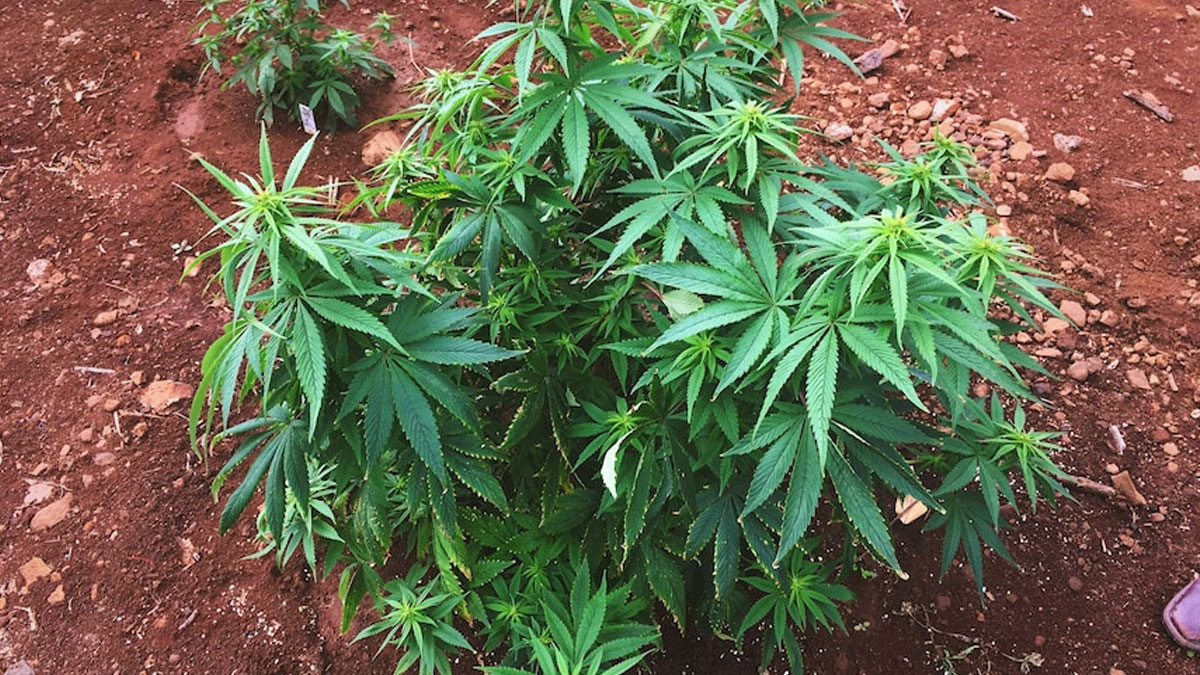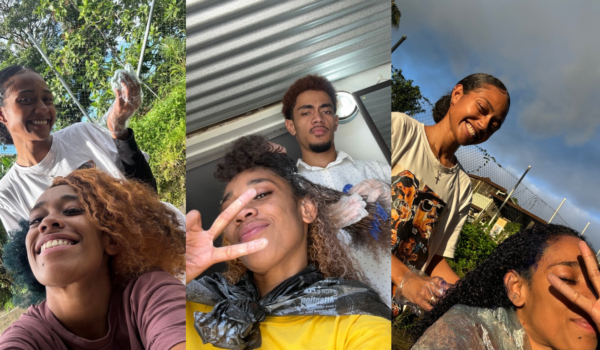
Vanuatu has become one of the first Pacific countries to allow businesses to grow medicinal cannabis and hemp, after signing into law policies governing the import, cultivation and manufacture of the plant.
It paves the way for the country to enter the global cannabis market, with some hoping the plant can become a major cash-crop for local communities.
The government has made at least five 10-year licenses available for businesses to purchase – two for growing medicinal cannabis and three for hemp production – for 10 million Vatu each ($123,000).
Businesses are also expected to pay an additional 10 million Vatu every year as a license renewal fee.
Medicinal cannabis is most often used to relieve chronic pain and has also been used to treat anxiety, cancer-related symptoms, epilepsy, insomnia and multiple sclerosis (MS).
Hemp typically has less of the psychoactive compound tetrahydrocannabinol, and can be used in products including rope, textiles, clothing, shoes, food, paper, bioplastics, insulation, and biofuel.
The director-general of Vanuatu’s Agricultural Department, Moses Amos, told local broadcaster VBTC the policies aimed to encourage foreign investment in the country.
“The government is especially focused on alternative resources that we can use, and one of them is industrial hemp and medicinal cannabis,” he said.
“It’s a potential resource that we can use and develop to become a potential export commodity for us, and at the same time bring a little money into the country.”
High risk industry
In an attempt to mitigate the “high risks” associated with the cannabis industry, the government has said it will only approve licenses for companies with at least 10 years’ experience in the field.
That would mean only foreign businesses from countries with long-standing marijuana industries like the US would be eligible.
But the move remains controversial in Vanuatu, where recreational use of the drug has a huge social stigma and remains illegal.
Former police officer Isso Kapum says he used to “chase criminals” who smoked or sold marijuana illegally.
But today he is hoping for a license to grow cannabis on his southern island, Tanna, believing it will bring development and riches to Vanuatu’s people.
“I did find out that it is very, very valuable to the islands of the Southern Hemisphere,” he said.
“On the island, we really have to identify a product that has demand and a product that has value and a product to sustain the people.”
An ‘exciting’ time for business
Mr Kapum said a chance encounter with Australian resort owner Andrew Smith first sparked his interest in hemp and cannabis farming.
Together, they founded Tafea Industries, a cannabis and hemp company with plans to begin the first commercial marijuana plantation on Tanna if they gain the government’s approval.
Mr Smith said the pair was almost driven out of the village when they first proposed the business idea.
“The reactions just by some were quite harsh,” he said.
“But it was nothing more than opening minds and showing opportunities.”
“Once we started to break it down a little bit, they started to see the opportunity of farming, the opportunity of aftermarket products.”
He says Tafea Industries now has the support of tribal chiefs around the island, who have also become shareholders in the cannabis company, and believes the release of cannabis and hemp licenses marks an “exciting” moment for Vanuatu.
A controversial past
Until recently, Vanuatu – like other Pacific countries – had criminalised the cultivation of cannabis.
But in 2018, the government became involved with a US-based medicinal cannabis company, Phoenix Life Sciences, headed by Australian Martin Tindall, which rapidly changed the country’s relationship with the controlled substance.
Phoenix Life made plans to test its cannabis-derived medication on diabetes patients across the country, and it struck a non-binding agreement with the government to use its products to treat cancer in hospitals.
Soon after, the government looked to amend its Dangerous Drugs Act to allow the commercial cultivation of cannabis – changes that were signed into law in 2021.
Mr Tindall, however, was arrested for securities fraud in the US in 2019, halting his company’s initial plans – though the ABC understands he still wishes to return to the medicinal cannabis business in Vanuatu, after he pled guilty to one count and was released from jail.
Vanuatu’s current government has distanced itself from Phoenix Life Sciences.
Mr Amos, from the Agricultural Department, said the current legislation was “not really” influenced by the company.
“The act was mainly driven mainly by our technicians here in Vanuatu,” he said.
“This Phoenix company operated outside the scope of the current legislation.”
Abuse, stealing concerns
Despite government assurances, some people in Vanuatu are sceptical about the country’s entry into the cannabis and hemp industries.
Sam Naiu, the Tafea provincial Agricultural Officer from Tanna, said while the country stood to benefit financially, he feared people would abuse the drug.
“On the social side, I think it’s a dangerous decision that the government has made,” Mr Naiu said.
“When we’re asleep in the night, someone can sneak through the fence and steal the marijuana.”
He suggests the government should introduce the product in remote areas first, where population is low.
“Don’t go to Tanna first, but allow it in a place where it’s easier to control, where security is strong and the production is safe.”
But Mr Naiu also sees the potential in cannabis production for the people of Tanna.
Vanilla and coffee are the primary export crops on the island, but most people earn a modest income through small-scale agriculture and the domestic sale of meat, vegetables and fruit.
Mr Naiu admits cannabis could provide another lucrative cash-crop, but he believes there are other ways the government can support local farmers.
“Vanuatu hasn’t even exported a local root crop, but now it wants to export something like marijuana that brings risks to this place,” he said.
Potential to become ‘global players’
Other Pacific countries are considering following in Vanuatu’s footsteps.
Cook Islands voted to legalise marijuana for medicinal purposes in a 2022 referendum, and a ministerial team has been appointed to look into the issue.
In 2014, Guam became the first US territory to allow medicinal marijuana, and in 2019 also legalised the drug for recreational use.
But it has taken many years for local cannabis businesses to win approval to farm and manufacture the plant, with the first licenses for production approved only a few months ago.
Charlie Hermosa from Bella Wings Aviation in Guam has applied for a license to deliver cannabis using a fleet of drones.
He said the new industry can allow Pacific businesses to become global players at the forefront of cannabis production, and stop relying just on tourism dollars.
“I think right now with the way the global economy is kind of working out, we’re trying to position ourselves to be able to sustain economic development outside of the normal channels that most islands have,” he said.
“[We need to be] first to market, creating an environment that says, ‘Hey, listen, Guam’s got some great cannabis’.”
And with more islands entering the cannabis market, Mr Hermosa said there could be an opportunity to create trans-Pacific businesses, including with Vanuatu.
“I would really love to talk to the government down there and see if there’s an opportunity.”
Story by: Prianka Srinivasan
Original article link: https://www.abc.net.au/news/2023-02-23/vanuatu-paves-the-way-for-cannabis-cultivation-export-/102007780








